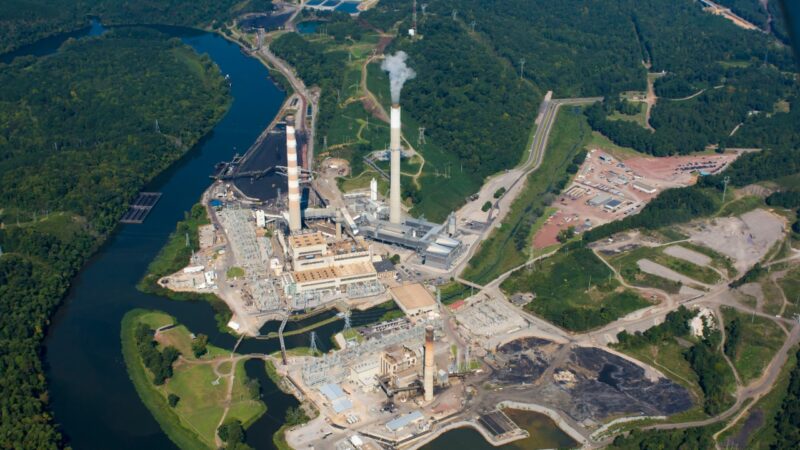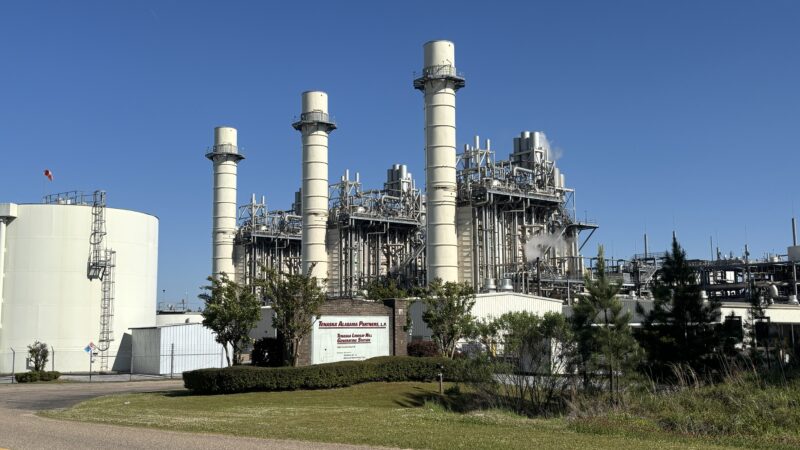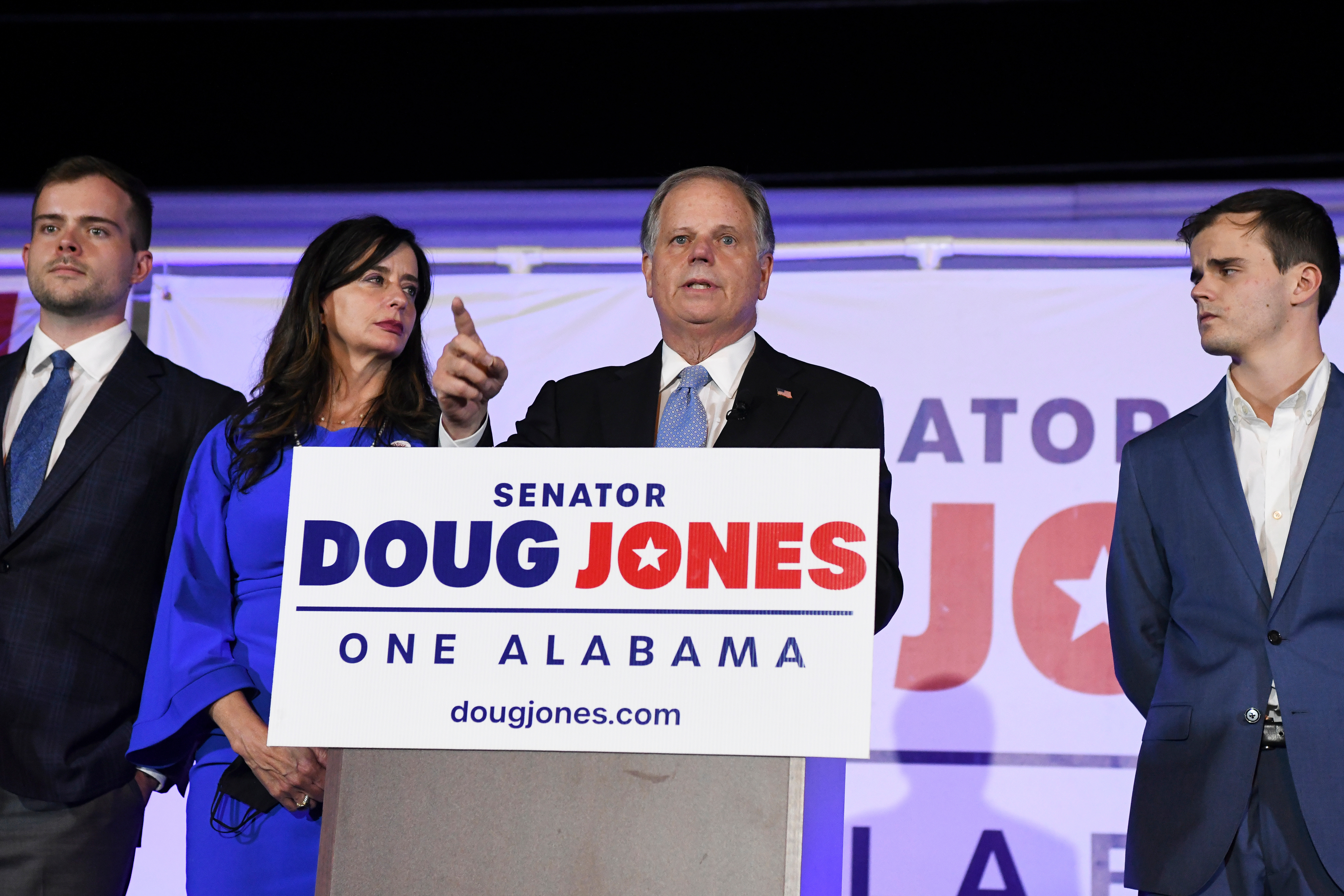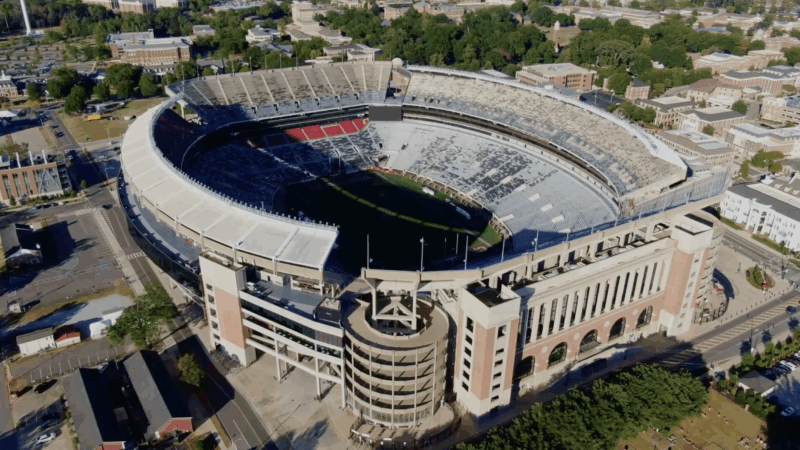EPA wants to reject Alabama’s coal ash program; says it is not protective enough
An aerial view of the William C. Gorgas Electric Generating Plant in Parrish, Alabama. The plant is one of four in Alabama that the Environmental Protection Agency raised concerns about concerning coal ash dumping.
In a first-of-its-kind decision, the Environmental Protection Agency wants to deny Alabama’s coal ash regulations, claiming the Alabama Department of Environmental Management’s (ADEM) proposed standards are too lax and don’t meet federal guidelines under the Resource Conservation and Recovery Act.
ADEM manages 16 coal ash landfills and surface impoundments — where the hazardous material left over after coal is burned for energy is stored. Currently, ADEM’s permitting allows utilities to dispose of coal ash in unlined waterfront pits, meaning that the coal ash can potentially pollute rivers, lakes, drinking water and groundwater.
The EPA made the proposal to deny the state’s coal ash program on August 3. According to its filing, Alabama’s permitting standards for these waterfront pits aren’t the same as the federal program’s and therefore weren’t protective enough to prevent groundwater contamination.
“Exposure to coal ash can lead to serious health concerns like cancer if the ash isn’t managed appropriately,” EPA Administrator Michael S. Regan said in a news release. “This is why EPA works closely with states to ensure coal ash is disposed of safely, so that water sources remain free of this pollution and communities are protected from contamination.”
In its notice, the EPA raised concerns about ADEM’s permitting for four plants: the Greene County Electric Generating Plant, the Gadsden Steam Plant, the William C. Gorgas Electric Generating Plant and the TVA Plant Colbert.
Coal ash pollution and contamination is an environmental justice issue for most of Alabama’s Black Belt region, said Ben Eaton, the president of the advocacy group the Black Belt Citizens for Health and Justice. Eaton believes that ADEM’s program needs more scrutiny and should match federal standards, with many of the least regulated dump sites being located in vulnerable communities.
“Most communities of color between [the] Mississippi line over to the Georgia line would have some kind of problem,” Eaton said.
If the EPA’s denial of Alabama’s permitting process stands, the state’s facilities would have to meet federal guidelines, which could force utilities to dig up and move tons of coal ash in unlined pits in order to be in compliance.
The EPA will seek comments for 60 days as part of the next step for the denied proposal. There will be an in-person public hearing on September 20 and an online public hearing on September 27. Both start at 9 a.m.
This story was produced by the Gulf States Newsroom, a collaboration between Mississippi Public Broadcasting, WBHM in Alabama, WWNO and WRKF in Louisiana and NPR.
Auburn tabs USF’s Alex Golesh as its next coach, replacing Hugh Freeze on the Plains
The 41-year-old Golesh, who was born in Russia and moved to the United State at age 7, is signing a six-year contract that averages more than $7 million annually to replace Hugh Freeze. Freeze was fired in early November after failing to fix Auburn’s offensive issues in three seasons on the Plains.
Alabama Power seeks to delay rate hike for new gas plant amid outcry
The state’s largest utility has proposed delaying the rate increase from its purchase of a $622 million natural gas plant until 2028.
Former U.S. Sen. Doug Jones announces run for Alabama governor
Jones announced his campaign Monday afternoon, hours after filing campaign paperwork with the Secretary of State's Office. His gubernatorial bid could set up a rematch with U.S. Sen. Tommy Tuberville, the Republican who defeated Jones in 2020 and is now running for governor.
Scorching Saturdays: The rising heat threat inside football stadiums
Excessive heat and more frequent medical incidents in Southern college football stadiums could be a warning sign for universities across the country.
The Gulf States Newsroom is hiring an Audio Editor
The Gulf States Newsroom is hiring an Audio Editor to join our award-winning team covering important regional stories across Mississippi, Alabama and Louisiana.
Judge orders new Alabama Senate map after ruling found racial gerrymandering
U.S. District Judge Anna Manasco, appointed by President Donald Trump during his first term, issued the ruling Monday putting a new court-selected map in place for the 2026 and 2030 elections.









